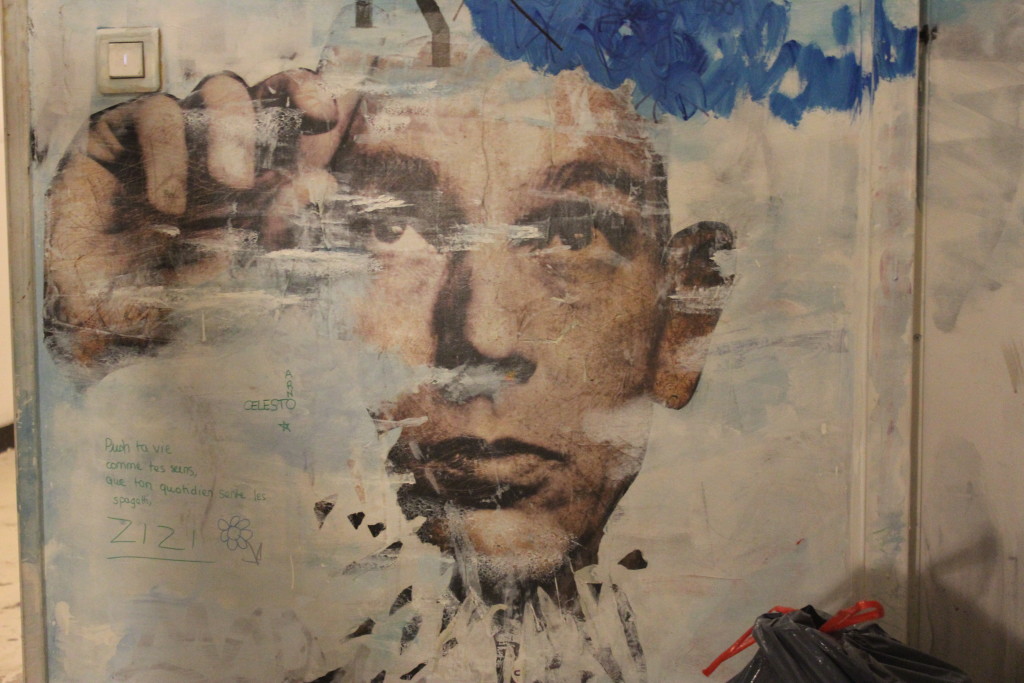NARRATION
He hollered
She slapped
He chose back of the hand
She found the horse whip
I visited the steer’s
rotting carcass
in the sun-blasted clearing
deep in the woods
He threw you out of the car
She brought soap to wash your mouth
He made you write
five hundred times
I won’t ever, I won’t
Buzzards, flies, wasps
by late summer the drying skin
rippling back–bed covers
shrugged off in the heat
She said you’re becoming
one of those
He still had his war
she her grand lost life
Curved horns, shiny hooves, his body
splayed in that galloping pose
daily visit to death, taking in its smell
smell–memory’s cup bearer
When she said pack up
and leave forever
he stared out the window
smirking at blue jays
Honeysuckle, pine boughs,
wild roses, they soften the stench
I’m here
you’re not
I’ve stories to tell
I’ve hardly begun
MANY FAMILIES HAVE ONE
He died yesterday.
I prowl memory’s rooms for his blank
and composed face, dark hair oiled back,
his perfect navy jacket, brass buttoned.
He was authoritative about boats, golf clubs,
tennis rackets, flying first class. You wonder
why I bother to mention him. He did bad things
to many children—not me—and everyone knew this.
Still, he was invited to sit at the table,
encouraged to carry on about luxury watches,
about the best caviar, the finest ski poles,
excellent tires, how to insist on good service.
He was a relation, was considered family,
always welcome for holidays. We kids remained
enraged about him, for years, our grand prince of nothing,
long before I knew the phrase, “banality of evil,” and his
showing up at holiday, all tawdry glamor, and now
he’s dead, far off, finally dead, not missed,
but held strangely in memory, the way you long remember
a bad dream you never entirely waken from.
EARLY EDUCATION
Dear ladies, gents, won’t make it
to your 50th. One day, dear little thugs of long ago,
I arrived in polished boots, fringed shirt
with silver snaps—gift from Ma—and was late,
Dad’s pickup raced us from farm
to town, and I stood before you all—
with your circle pins, pastel flats, your
slicked-back boy hair, penny loafers—
snickering beneath the yellow-toothed grin
of your homeroom goon, Mrs.
Something—who cares! She got Dad
to remove me! Me—bereft of a skirt!
Pa heads us to the track, the late set
galloping out, jogging back. Trainers mumble,
pony girls rosy, hot-walkers, racing forms rattle,
Dad pleased the colt worked the six in twelve
and change, galloped out kindly,
whole backstretch alive
with glazed donuts, cocoa, enough smart talk
to call back, all down the years. World’s had
its way, good times outweigh the rest.
MOM’S LOADED TODAY
Her house got robbed while she slept and her dogs,
her cat, all quiet, all loafing on the job.
Next day off she’s off to the local gun shop,
a grandkid in tow, grandkid’s ma. Little, skinny,
old, beautiful, and so full of herself, Mom wants
and gets the thing itself, and loads it up.
Shows up for lunch at the mall, at the slightly fancy,
Chinese chain place with the requisite, antiquish
rearing and snorting, robust plaster horses out front.
Anyhow, everyone’s ordering up the shrimp,
the sautéed this, the fried that, plenty of sizzle.
She hauls it out, yes she does, dips into her
Queen Elizabeth-era big leather bag and hauls out
the big gun, flourishes it while the waiters scurry,
voices beside her: Ma, shut the hell up, put it away,
and there she was, as we well remember her, waving it,
proclaiming, Ha, I’ll get the stupid bugger next time.
CHESTER COUNTY, PENNSYLVANIA
There were real roads and the other roads, meaning asphalt, meaning they went to nameable
towns; but real roads, meaning dirt roads, shouldered the banks of the poplar-shaded river;
veered along fields with red cattle grazing knee-deep; sliced through corn rows, past the stone
house that collapsed after old missus so-and-so went mad and old mister so-and-so drank himself
into a final tizzy after his best kid was felled by gunshot, though we’ve forgotten which
happened first, but that it did happen, because a man told our dad, who told us about it all
summer, driving to the track at dawn, while cluing us in to everything else we had to know for
later on, always taking the long-cut for the hell of it; but nowadays a dirt road often dies straight
into asphalt, trading the spit and sizzle of small pebbles for the smooth-shaven, high-pitched
sound of fast tires under people in a hurry; although some dirt roads rescue themselves, ducking
into the thickest woods they can find, circling a clearing of charred wood and bent beer cans; and
these are great roads, being neither easy nor soft, but flat-out refusing to be metaphor roads, and,
if you’re lucky, you ride a horse on a loose rein, take the pickup if you’ve got four-wheel.
MELVILLIAN
Almost my favorite lines
during the whole Melvillian winter of hearing him,
not him exactly, but some guy reading him aloud,
mile after mile, and he really did Ishmael justice,
on our long drives home from the valley,
where my favorite lines came at the end
of that interminable chapter on cetological systems,
the nomenclature of whale conformation,
every corner and cranny delved most thoroughly,
as we drove home day after day, the voice instructing
through the long sea voyage, while we lived
through a nearly biblical drought, the air outside yellow,
the winter hills brown when they should have blazed forth
in tourmaline, the sun a sullen, muted lump.
We wondered about him, our guide, not just our reader,
but Ishmael, our faithful teacher, winding down
from the sperms, the killers, the humpbacks,
the tail fin, the baleen, the quality of oils, and he saying,
God keep me from completing anything. And then he saying—
or what we heard him say,
that long drive home from the valley—was that this is a draft
of a draft. But once home and delving the pages, I see
it’s spelled draught of a draught, before flipping
the pages to learn it’s a variant of draft. And so then,
apprised of the tenuous nature of language, I’ve inhaled
the flavor, taken in the draught, the whole measure,
the full scent of his words.
Mom’s Loaded Today– first appeared in Spillway
Melvillian–was published in Euphony
Chester County, Pennsylvania–first published in Sweet: A Literary Confection

Helen Wickes is the author of four books of poetry: In Search of Landscape, Sixteen Rivers Press, 2007; Moon over Zabriskie and Dowser’s Apprentice, both from Glass Lyre Press, 2014; World as You Left It, Sixteen Rivers Press, 2015. She grew up on a farm in Pennsylvania, has lived in Oakland, California for many years, and used to work as a psychotherapist. The six poems in The Dream Machine are from her unpublished manuscript, “Transit of Mercury.” She is a member of Sixteen Rivers Press, which will publish the anthology America, I Call Your Name: Poems of Resistance and Resilience in fall of 2018.
Featured image: Photo by Melina Piccolo.





















































